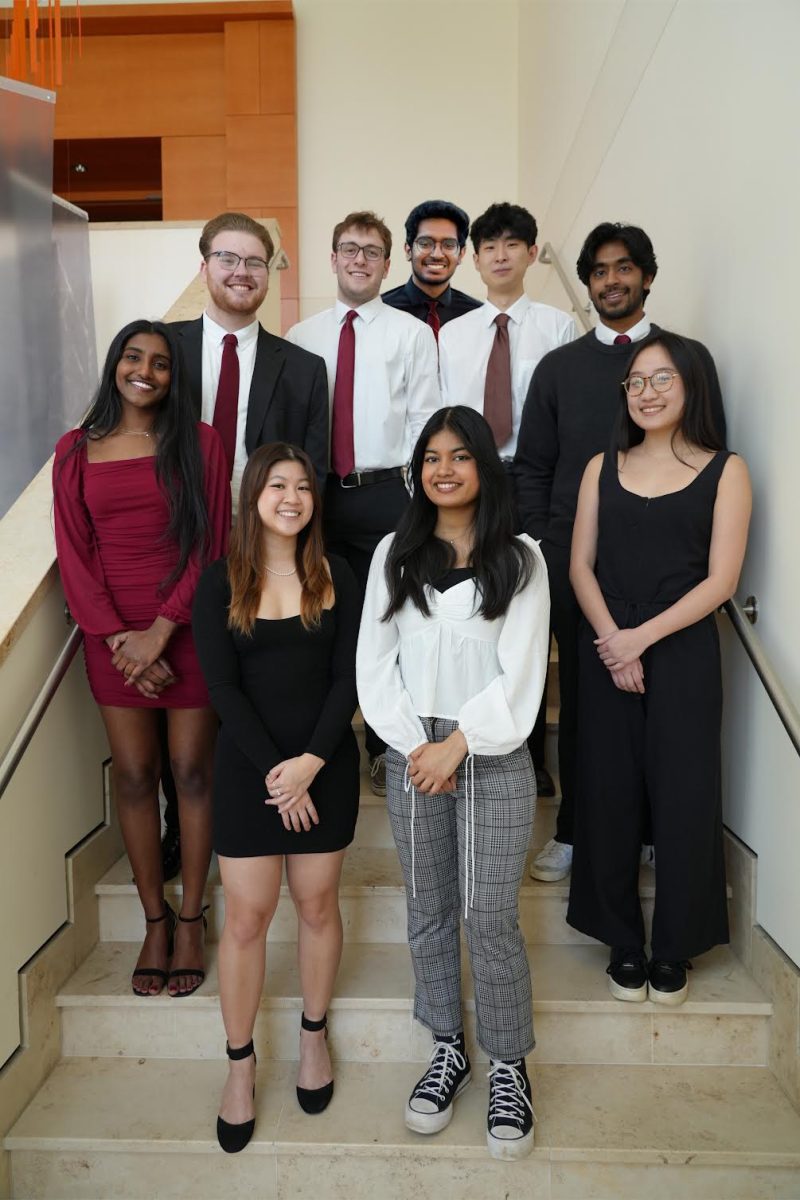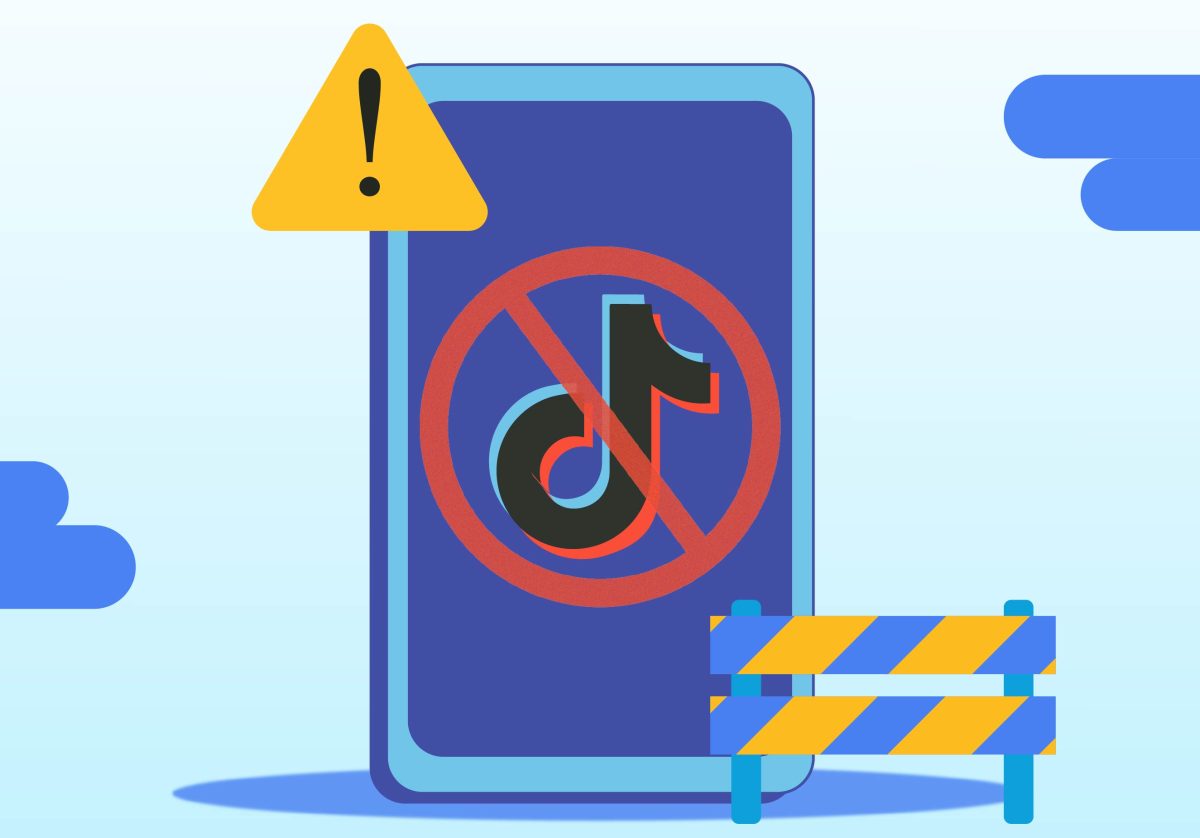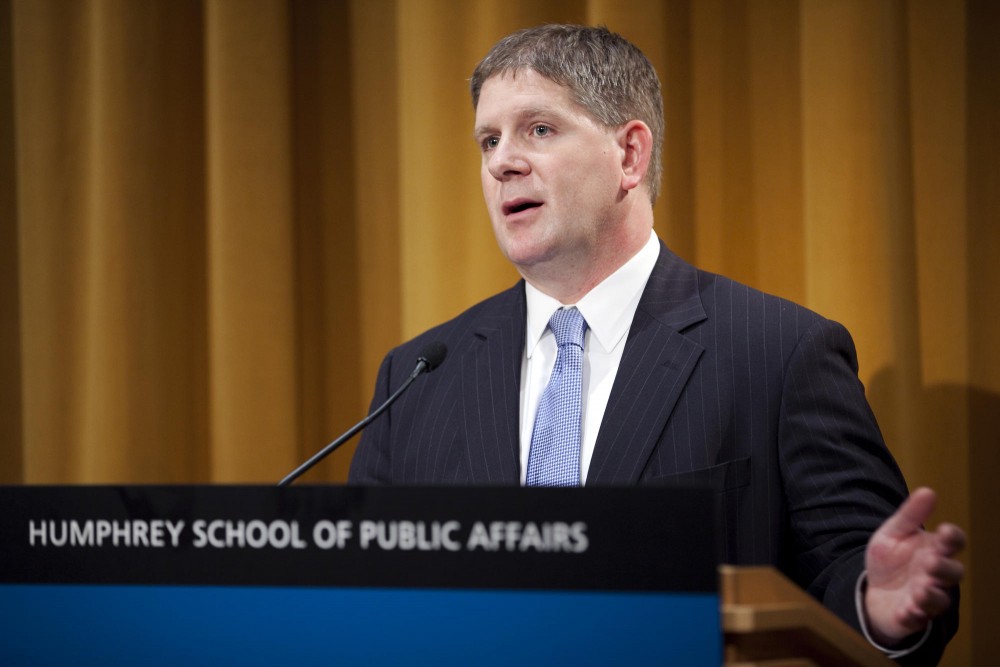The 2012 state legislative session begins Tuesday with legislators set to tackle a multitude of issues in the next three months.
Following the longest state government shutdown in recent history and weeks of political turmoil at the end of the year, the Legislature will convene with a new Senate majority leader âÄî Sen. Dave Senjem, R-Rochester âÄî and the University of Minnesota area will be represented by a new senator for the first time in almost 30 years by Kari Dziedzic, DFL-Minneapolis.
Many of the issues that will come up at the Capitol will have implications for students.
The passage of a bonding bill, the VikingsâÄô stadium debate, multiple constitutional amendments and the redistricting process will all be hot topics during the session.
The UâÄôs piece of the bonding bill
Last week, Gov. Mark Dayton released his outline for a bonding bill, which came as a disappointment to University officials.
The University requested $90 million for Higher Education Asset Preservation and Replacement âÄî funds to repair and make improvements around campus âÄî but DaytonâÄôs request only provided for $20 million.
Additionally the University would get $54 million to renovate the Old Main Utility Building which puts the UniversityâÄôs total share of the bill at roughly $78 million âÄî about $100 million less than the University requested.
Rep. Phyllis Kahn, DFL-Minneapolis, said the bonding bill is the most important issue for the University this session.
While some were disappointed by DaytonâÄôs request, other legislators downplayed the importance of his initial recommendations, as they are not final. Senjem has previously said he expects a bonding bill to finish at around $400 million when itâÄôs completed. DaytonâÄôs bill was about $775 million worth of projects.
Regardless, Kahn was disappointed the governor didnâÄôt put more money in his request for the University. She said it may have been a tactic to please the Republican-controlled Legislature.
University President Eric Kaler will appeal to legislators at the Capitol on Friday about the importance of bonding money to the University.
Constitutional amendments
Not only will every state legislator go up for re-election in November, there will also likely be a series of ballot questions on amendments to the state constitution.
The amendment that has gathered the most attention is the amendment to put a constitutional ban on same-sex marriage, which passed the Legislature in May 2011.
Those on both sides of the issue started preparing for the battle more than a year before the question will be on the ballot with advertising and lobbying campaigns.
While the marriage amendment could affect people across the state, an amendment pushing a voter ID requirement may hit closer to home for students.
Dayton vetoed a bill last session that would have required Minnesota voters to show photo identification at the polls. But Republicans have introduced legislation that would bypass Dayton and let citizens decide the issue in the 2012 election.
The governor cannot veto a constitutional amendment, but it still needs a majority of the Legislature to approve the measure to get on the ballot.
Because many students come from outside the state, they could have more trouble finding proper identification in order to vote.
âÄúThis could end up disenfranchising a lot of students,âÄù Schultz said.
House Speaker Kurt Zellers, R-Maple Grove, said there was a lot of support for the amendment.
âÄúThatâÄôs a pretty common-sense issue,âÄù he said Thursday at a legislative preview at the Humphrey School of Public Affairs.
Kahn, on the other hand, said she was against it.
âÄúIâÄôm totally opposed to that,âÄù she said. âÄúItâÄôs really, really bad. It would remove things that are critical for students to vote.âÄù
Other possible measures that could make it to the ballot include an amendment to require a three-fifths majority to raise taxes and one that would make union membership in the workplace voluntary.
New Vikings stadium
The stadium debate, which has been a constant topic of conversation for legislators in the past few months, could hit home for University students depending on which site is chosen.
While a site has yet to be determined, Dayton told the teamâÄôs owners Monday that the current Metrodome site is the only option for a deal to be passed this session.
In that scenario, the team would play at TCF Bank Stadium for an estimated three seasons, creating logistical issues for the University.
But before questions of whether or not the University will host the Vikings can be tackled, lawmakers will need to overcome a political stalemate that has persisted for months.
âÄúIt is rumored that some legislators would prefer to postpone action until 2013 because they want to avoid taking a tough vote on a controversial project,âÄù Dayton said at a legislative preview session, referencing the fact that 2012 is an election year.
But some legislators have pushed for the Vikings stadium to finish soon.
âÄúI donâÄôt know what the next roadblock is,âÄù said Senate Minority Leader Tom Bakk, DFL-Cook, âÄúBut I think the Vikings deserve a vote on this issue.âÄù
Although the Vikings have denied it, proponents of a new stadium have said in the past that the Vikings could move if a deal is not reached on a new stadium.
David Schultz, policy professor at Hamline University, said the stadium debate will be the most high-profile issue this session but that the bonding bill is still the most important.
Redistricting
After the census is complete once every 10 years, legislative lines in Minnesota are redrawn to reflect population shifts. The UniversityâÄôs district could be cut up and affect its representation.
In the fall, the state held public testimonies for citizens to testify as to how certain districts should be shaped.
Both parties revealed a redistricting plan but were criticized for being too partisan. A court panel will reveal the new districts Feb. 21 in what Kahn said will be the beginning of a manic legislative period. A week later, the state will unveil its budget forecast.
Schultz said once the maps are finished in February, legislators will decide whether to run for re-election in November.
âÄúThe redrawing of the lines affects potential candidates or challengers to the incumbents,âÄù he said.
Because all 201 legislators are up for re-election, Schultz said, âÄúBoth the Democrats and Republicans will be jockeying for position.âÄù He said legislators will be âÄúpushing issues that theyâÄôll be able to score advantages with.âÄù
















